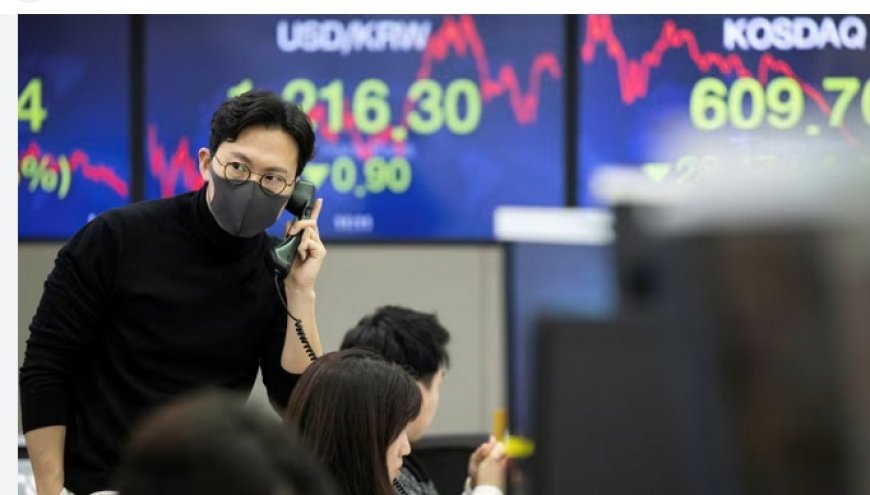How South Korea’s Export-Driven Economy Shapes Forex Trading Strategies
How South Korea’s Export-Driven Economy Shapes Forex Trading Strategies

South Koreas economy is heavily dependent on its powerful exporting system, where industries such as electronics, automobiles, and shipbuilding make a big contribution to the development of the country. The association with global markets is far too close for South Korean traders to ignore observing movements on exchange rates and global economic measures that are likely to affect investments and business operations. For most South Koreans investing in the market, Forex trading is an essential mechanism for managing economic risks, while taking advantage of opportunities related to their export-based economy. The way that traders from the South Korean market act in the forex market often depends on how the local economic situation correlates with changes in the international financial world.
Such trading is particularly appealing for South Korean traders because they can actually capitalize on the correlation between currency values and the state of their export sector. And much of that economic success of South Korea really depends on exports, so the won value really has a major effect on how much demand there is for its products. A value appreciation of the won could lead to increased expenses for the exports to overseas buyers therefore weakening overseas demand. On the other hand, weaker won makes South Korean exports more attractive to foreign buyers and many a time increases demand. Such moves are challenges and opportunities for traders as they can guarantee the security of their investment through Forex trading by hedging them from fluctuations in currencies. Foreign currency trading techniques designed to mitigate currency fluctuations are the shield for the South Korean portfolios.
Forex trading has become an indispensable risk management tool for traders in South Korea that enables them to navigate a world of uncertainty within global marketplaces rather than speculation. For the export-oriented firms, the world is a tricky place: trade conflicts, political advisories, and issues of the domestic trade policies often impact the exchange rates. Consequently, South Korean traders can apply Forex strategies in order to reduce these uncertainties by using different hedging methods. Through the use of positions on currencies that move against the won, traders could minimize the effects of adverse exchange rate change on the portfolio. With currency trading, South Korean traders have ways of safeguarding their financial assets and maintaining their businesses profitability.
Besides, global economic changes affect South Koreas economy more directly because it is quite dependent on exports. Volatile movements in oil and the prices of semiconductor chips are common factors that determine the fate of the won. For example, the large increase in demand for semiconductors around the world can cause an increase in the levels of South Koreas exports, eventually strengthening won. On the other hand, a drop in foreign demand for South Koreas main exports may weaken the value of won and the broad economy. Foreign exchange trading benefits South Korean traders because it allows for a rapid adjustment to movements in the market through the ability to adjust their currency exposure. This adaptability is the reason why Forex trading has taken a critical role in investment strategies of many Forex traders in South Korea.
The Forex trading strategies in South Korea are also influenced by the decisions that are made by the national authorities in matters of economic policies. The Bank of Koreas actions like increasing or decreasing interest rates or the impact of currency operations have significant effects on the strength of the won. Those traders who monitor closely these policy changes are better positioned to exploit market opportunities. As an example, if the central bank intimates that it will raise interest rates in its fight against inflation, the wons value may change and the traders can respond thereto in the Forex trades. South Korean traders can maximize their positions in the Foreign Exchange market by closely following global as well as home events.
Trading forex does, however, have its dangers along with its rewards. Market instability combined with uncertainty around currency moves, carry a serious potential for large amounts of money loss. It is therefore critical for South Korean traders to act strategically and remain informed with current changes in the market and do sound analysis and prudent risk management to preserve investments. Although some traders rely on high-tech platforms as a way to predict market trends, others prefer staying current with global economic signals through continuous fundamental and technical analysis.
Eventually, South Koreas economic dependence on exports plays a major role in the trading patterns of its investors in the forex market. Forex trading becomes a very important way to hedge against fluctuations in currency and fluctuations in the global economy for many South Korean traders. Against the backdrop of an ever-changing global economy, it is probable that South Korea investors will continue to engage in Forex trading as an essential resource for dealing with the challenges and opportunities presented by the export-oriented economy.




































